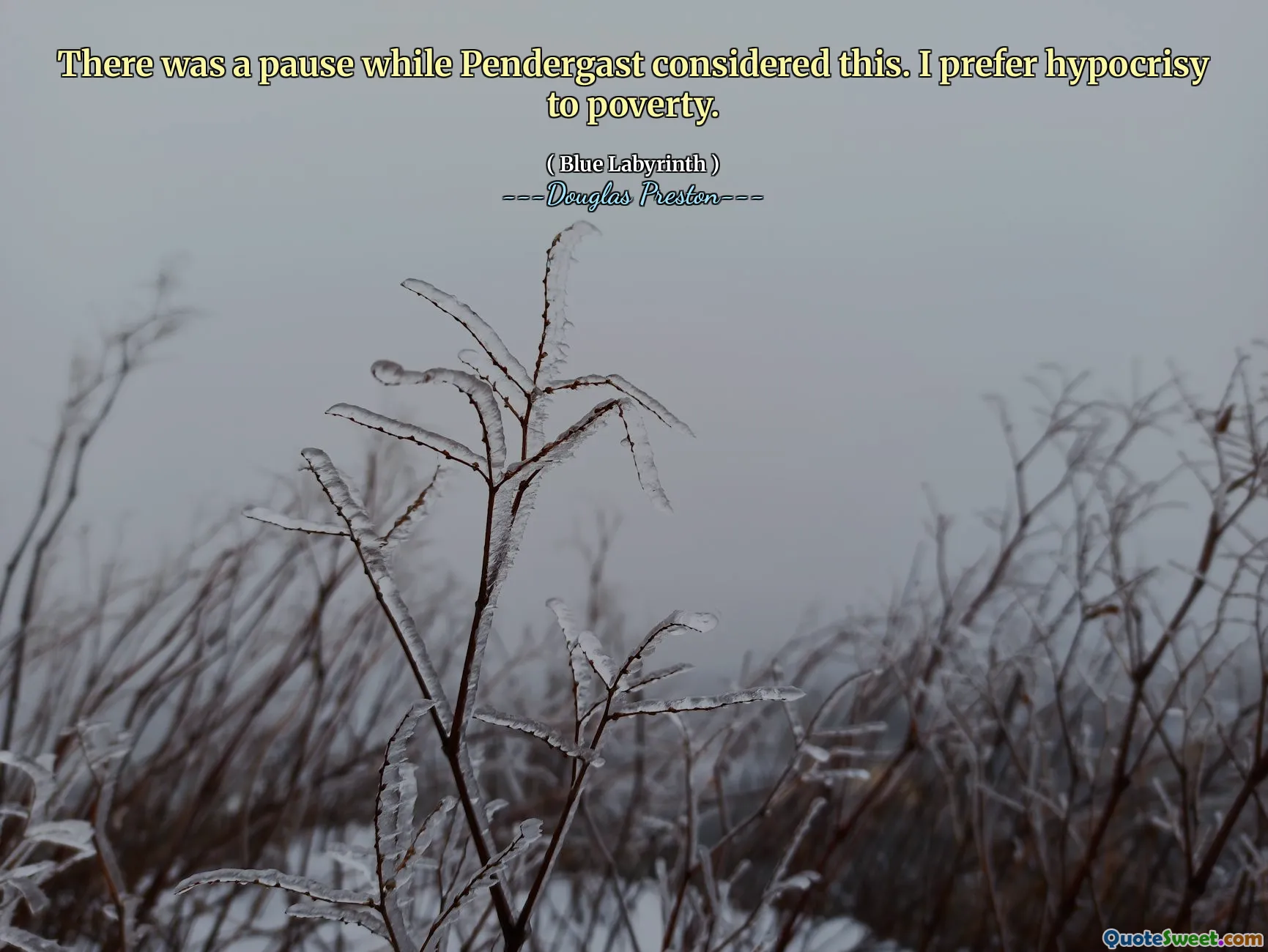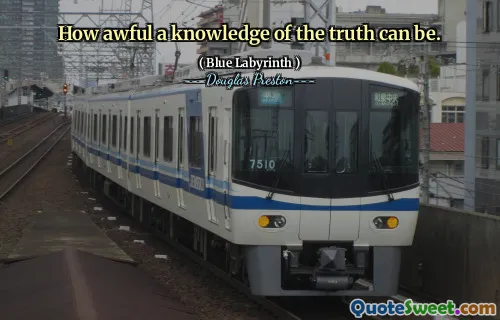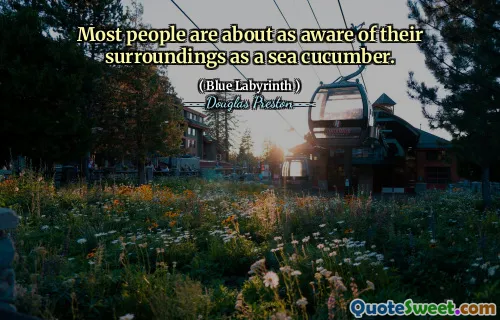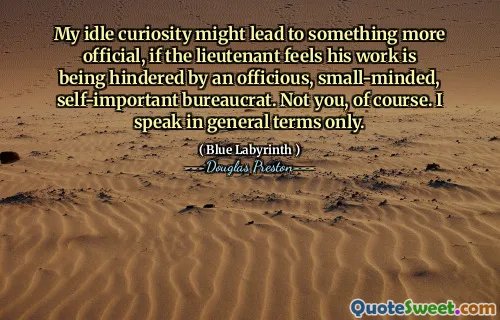
There was a pause while Pendergast considered this. I prefer hypocrisy to poverty.
In "Blue Labyrinth" by Douglas Preston, the character Pendergast engages in a moment of reflection that highlights a complex moral perspective. He weighs the two extremes of human experience—hypocrisy and poverty—ultimately expressing a preference for one over the other. This statement captures Pendergast's nuanced understanding of societal values and the human condition, suggesting that he would rather exist within a framework of pretense than face the harsh realities of lack and deprivation.
This quote unveils deeper themes related to social status and moral choices. It poses a provocative dilemma about the lengths to which individuals might go to avoid discomfort or suffering. Pendergast's choice illustrates a fundamental conflict in human nature, questioning whether it is better to maintain appearances, even if insincere, than to confront the starkness of poverty. This internal struggle adds layers to his character and opens up a dialogue about ethics, resilience, and the façade of societal norms.









